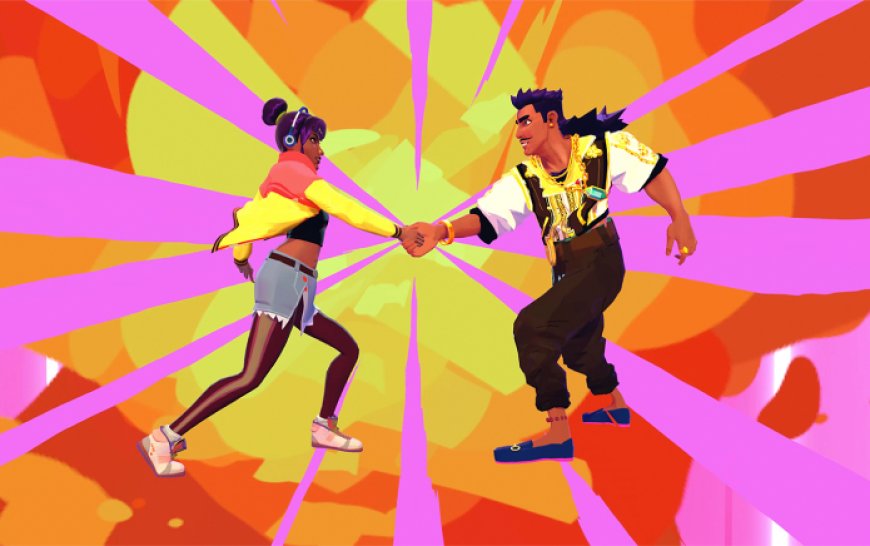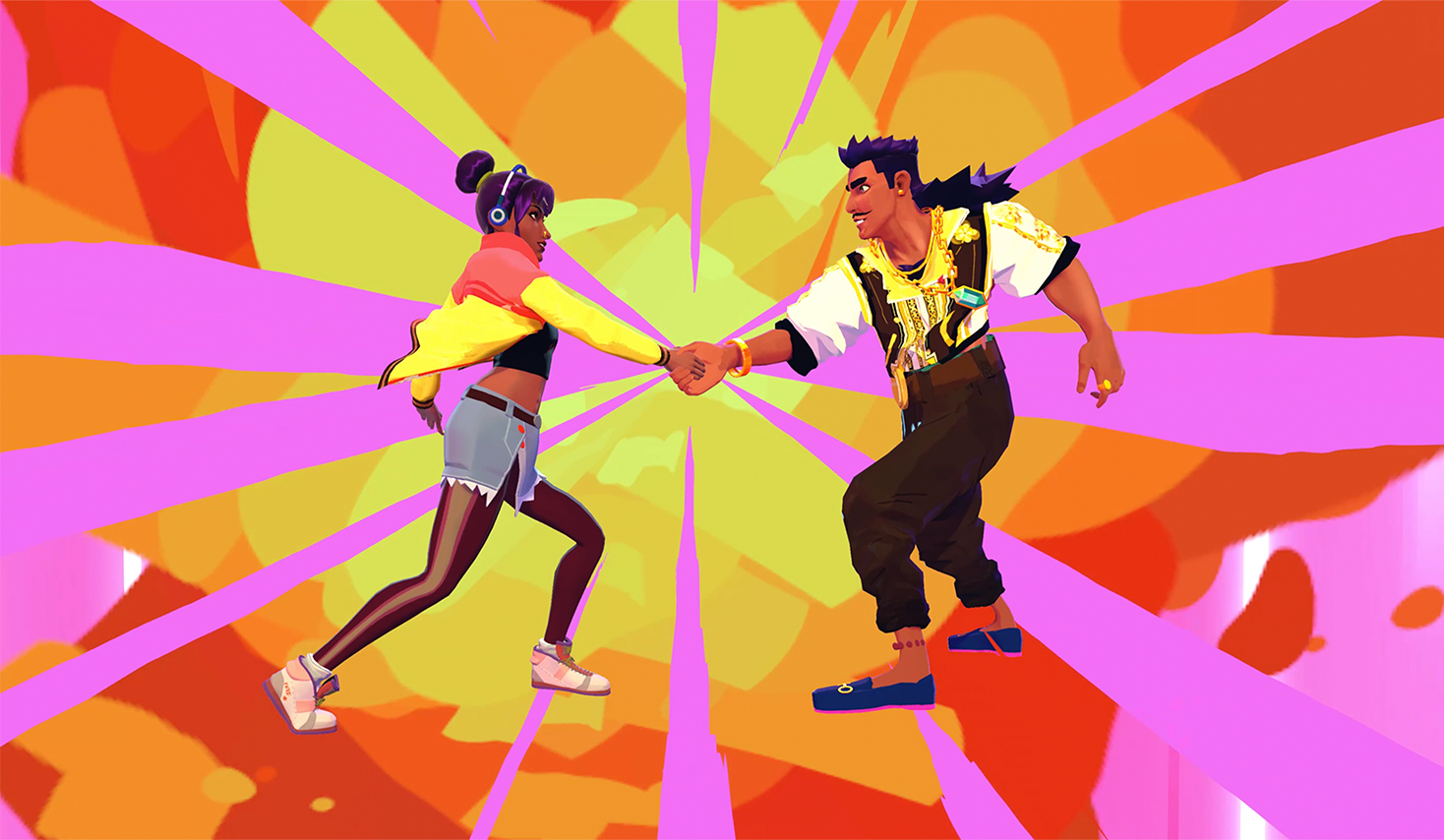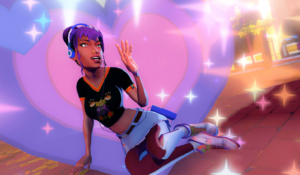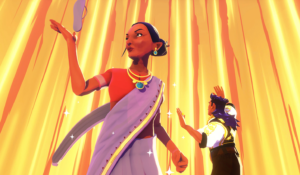This video game explores just how messy queer breakups can be
‘Thirsty Suitors’ is a queer South Asian take on a Scott Pilgrim story, featuring skateboarding gameplay and a bear-based cult WORDS BY ELI CUGINI Overloop Games’ debut, Thirsty Suitors, is… The post This video game explores just how messy queer breakups can be appeared first on GAY TIMES.


‘Thirsty Suitors’ is a queer South Asian take on a Scott Pilgrim story, featuring skateboarding gameplay and a bear-based cult
WORDS BY ELI CUGINI

Overloop Games’ debut, Thirsty Suitors, is so fresh, fun and smart that its writing feels like it’s skipped an evolutionary stage: how did we go from barely having any queer game protagonists a decade ago to this? It’s one of the most exciting queer releases in years, from the mostly-fulfilled ambition of its premise – a queer South Asian take on a Scott Pilgrim story, featuring skateboarding gameplay and a bear-based cult – to its bouncy animations, bright colours, and top-notch writing. There’s a lot of areas in which Thirsty Suitors makes an impact, but one of the biggest is its innovations in breakup narrative: I can barely think of any media, let alone just games, that looks at breakups as incisively, kindly, and queerly. So, what makes this game so groundbreaking in its depiction of youthful relationships and their often-messy aftermaths?
In Thirsty Suitors, you play as Jala Jayaratne, a 21-year-old South Asian-American woman (her mother is Indian, her father Sri Lankan), who has just dropped back into her hometown after some…time away. It’s quickly apparent that you’re on an apology tour: three years ago, you dumped your long-suffering girlfriend with a collect call, left with your new, older girlfriend without saying goodbye, and have barely spoken to your family since. Now, you’re freshly dumped and slinking back home to piece your life back together. Throughout the game, you encounter and battle six of your exes (the ‘battle’ is half-fight, half-intense conversation, ending in a reconciliation when you succeed), through which it becomes apparent that you were quite the romantic terrorist in high school. At the same time, you’re also rebuilding your relationships with your family in the run-up to your sister’s wedding.
There’s so much thought and care put into Thirsty Suitors, so much emotional depth: this is so obvious in its focus on Desi life and culture, which is visible everywhere, but takes centre stage in the recipes you make and the conversations they facilitate in the rhythm-based Cooking sections. (Every recipe has a rich family narrative behind it; Jala’s sister’s Palestinian fiancé making makloubeh for his in-laws is a particularly genius one.) It’s a game eager to sink its teeth into and complicate stereotypes: both Jala’s mother and grandmother are stern, overly critical matriarchs, but the story is quick to humanise them and contextualise the way they act, while Jala’s kindly father is frank about the mistakes he’s made in the past. And the emotional intelligence of the game takes centre stage during the confrontations with Jala’s exes.

Jala isn’t a bad person, but she has genuinely hurt people. She’s cheated, she’s lied, she’s been self-centred, she’s charmed people and then dropped them when the novelty wore off, she’s chosen cowardice over emotional honesty and run away rather than having hard conversations. You can’t dialogue-option your way out of Jala’s flaws and bad actions. But you can have confrontations that face and apologise for those mistakes, and that ask why they happened – and in the process, Jala’s exes also come to terms with their own insecurities, needs, and grudges that they’re projecting onto Jala. (We all love to mythologise our first loves, after all.) It’s an approach to breakups that feels very queer in sensibility, particularly in relation to queer women: you don’t need to demonise and cut off all your exes, you can be a positive force in each other’s lives, but you should work through your shit first. Also, maintain some boundaries. I’m not going to say every queer woman I know has followed that advice…but it’s an ideal, at least.
In focusing on being a ‘breakup simulator’, a game about past relationships rather than future ones, Thirsty Suitors gets to be really incisive about the parts of relationships that dating-based games usually avoid: the bad reasons we date people, the reasons people cheat and lie and sneak around that aren’t just ‘I’m a bad untrustworthy person’, the things that happen in our lives that impact our relationships. This is where the queerness of Thirsty Suitors reveals itself as more than just a reason to give Jala a fun gender-mixed suite of exes – it’s really embedded in the game’s story. The game has an intimate understanding that while Jala’s attractions may be pretty equal across genders, her relationships don’t have an equal standing. At times, she makes bad decisions based on who she ‘should’ be dating in her family and culture’s eyes: ‘handsome, brown, a man.’ (It’s pretty clear that none of Jala’s male exes are actually good partners for her, no matter how shiny their eyes are or how pumped their biceps.)
Diya, Jala’s lesbian ex, was disowned by her family after she came out, which creates complicated resentments between them: very understandably, Diya is angry that Jala has an accepting family and still ran away, but Jala knows she needs to be able to have conflicts with her family without just being grateful that her family didn’t kick her out. Diya is projecting far more onto then-16-year-old Jala than Jala can hold, but of course she is; she was Diya’s first love, and the blueprint of free, shameless queerness that Diya has since struggled to reach herself. The game carefully integrates the nuanced cultural and gendered expectations that Jala and her exes struggle with, from Diya’s casteist and classist inner critics manifesting as beautiful crystal enemies, to Andile cycling through physical forms, struggling to find legible embodiment as a nonbinary South African and eventually accepting their own fluidity. It’s a really impressive formal achievement.
Thirsty Suitors is specific about queer pains and joys and regrets, even as it integrates them into its wider exploration of being young, navigating generational trauma, and trying to figure out what to do with your life and how to stop f**king up. Jala has a big task in the game where she doesn’t really succeed, and she’s not sure if she made things worse. She doesn’t want to go to college, at least not yet, and even if you (the player) disagree, you can’t make her. This is not a game about winning at relationships or at life. It’s about trying to get the insight you can, and trusting that you can survive confrontation, with both other people and with yourself. It’s really hard to bring that mixture of evolution and uncertainty to a game, and it’s one of the reasons Thirsty Suitors feels like such a joy to play.

The care given to the cast does make it conspicuous where the game could have pushed further, though. I loved Tyler, Jala’s longest-term and longest-suffering ex – it was really nice seeing a trans woman character be both so cool and so sympathetically flawed, and I’m so glad Christine Rose Schermerhorn played her VA – but the game’s writing feels a little cagey about her. It really wants to have Tyler just be Jala’s ex-girlfriend, without a bunch of transphobic baggage (everyone accepts her uncomplicatedly as a woman), but in the process it misses details that would specifically flesh out Tyler’s life experience. When Jala apologises for jealously keeping Andile away from Tyler, we can hear the unspoken subtext: she kept probably the only two trans kids in the school from being friends with each other. When we hear about Tyler’s low self-esteem, her propensity to forgive all of Jala’s transgressions, her ’intensity’, it feels frustrating to not hear the subtext of that named: Tyler is a trans woman, Jala is a cis woman, Jala is given social power and value over Tyler, and she’s acted like it. And Diya bullied Tyler badly enough for it to kill her relationship with Jala, but it turns out she bullied her…for being a goth. Really? In any case, Tyler has won a huge emotional victory separating herself from her cis ex’s regard;
that should have gotten more explicit recognition.
So, sure, Thirsty Suitors isn’t a perfect game. It’s somewhat mechanically repetitive, occasionally slow to register inputs (at least on my computer), and its background animations while moving are a crime against the motion-sick community. But its dive into family and romantic conflict gives us a completely new, queer take on the fighting game, where you can ‘win’ not through firepower, but through riding through the harsh truths conflict gives us about ourselves, and understanding that conflictual relationships can still be worth having. You can’t always be the better person, or give the perfect answer, but as Jala’s ex Irfan learns, avoiding conflict doesn’t necessarily make you the better person, either. Who knew a horny skateboarding game could have such good insight into community-building?
The post This video game explores just how messy queer breakups can be appeared first on GAY TIMES.

 Mark
Mark 





